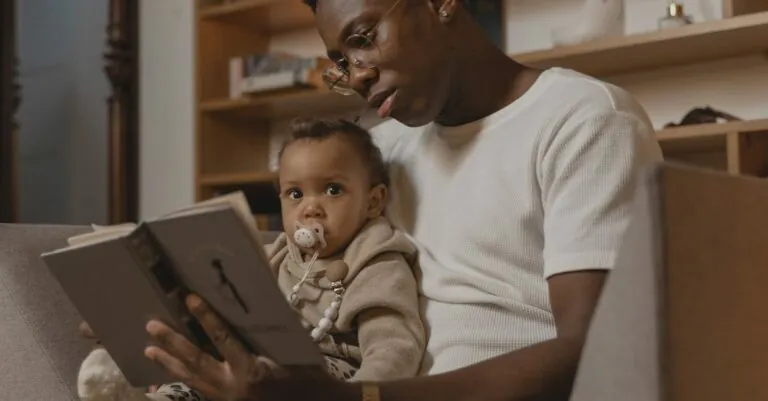Navigating the divorce process in Florida can feel like trying to surf during a hurricane—chaotic and overwhelming. But fear not! With the right knowledge, it can be smoother than a day at the beach. Florida’s divorce laws may seem tricky, but understanding the steps involved can save time, money, and a few sanity points along the way.
Table of Contents
ToggleOverview Of Divorce Process In Florida
Understanding the divorce process in Florida involves several key steps. Filing for divorce starts with submitting a Petition for Dissolution of Marriage in the appropriate court. After filing, the petitioner must serve the divorce papers to the respondent.
Respondents receive 20 days to reply if served in Florida. If a response doesn’t come within this timeframe, the petitioner can seek a default judgment, which could grant a divorce without further court appearance. Negotiations between parties can take place at any stage, often concerning asset division, child custody, and support arrangements.
Mediation frequently helps facilitate these discussions. It provides an opportunity for both parties to reach agreements outside of court, reducing time and costs. If mediation fails, the case may proceed to trial, where a judge will ultimately decide disputed matters.
Temporary hearings may occur as well. These hearings address immediate needs, including child support and possession of shared property. Following hearings, discovery ensues where both parties exchange information related to finances and assets.
Finalizing the divorce occurs with a Final Judgment of Dissolution of Marriage. This document formally ends the marriage and outlines the agreement reached or the court’s ruling. Copies of the final judgment are essential for personal records and future reference, especially in matters regarding child custody and support.
Navigating through this process in Florida, while complex, becomes manageable with the right approach. Utilizing resources, consulting legal professionals, and understanding rights simplifies challenges. Awareness of each stage aids in effectively managing time and expectations through this life transition.
Filing For Divorce
Filing for divorce in Florida involves specific requirements and necessary documentation. Understanding these elements streamlines the process and minimizes complications.
Eligibility Requirements
To file for divorce in Florida, at least one spouse must reside in the state for six months prior to filing. This residency requirement ensures that Florida courts have jurisdiction over the case. Couples must also meet grounds for dissolution, which can be based on irretrievable breakdown of the marriage or mental incapacity of one spouse. If the couple has minor children, they are required to attend a parenting course before finalizing the divorce. This ensures both parties are informed about the impact of divorce on children.
Forms And Documentation
Several forms are essential when filing for divorce in Florida. A Petition for Dissolution of Marriage serves as the initiating document. Additional paperwork may include the Family Law Financial Affidavit, Child Custody Verification, and Uniform Child Custody Jurisdiction Enforcement Act (UCCJEA) Affidavit if children are involved. All forms must be completed accurately and filed with the appropriate Florida court. Gathering financial documents, marriage certificates, and any prenuptial agreements beforehand provides essential support and speeds up the filing process. Not submitting the correct forms may lead to delays or complications in the divorce proceedings.
Court Procedures
Navigating court procedures during a divorce in Florida involves several critical steps. Initial hearings and mediation play significant roles in the process.
Initial Hearings
Initial hearings occur shortly after filing the Petition for Dissolution of Marriage. These hearings cover temporary issues, like child support or spousal support. Parties must present their case to the judge, who may issue immediate orders. It’s essential to prepare necessary documentation beforehand. Evidence and testimony help clarify requests and needs. Each spouse should come with an understanding of their financial situation and family dynamics. Additionally, these hearings set the stage for future negotiations and scheduling.
Mediation Process
The mediation process often unfolds as a key component of Florida’s divorce procedures. Parties meet with a neutral mediator, who guides discussions on unresolved issues. During these sessions, the mediator facilitates communication and encourages compromise. Participants can address child custody, asset division, and other disputes. Successful mediation can lead to a mutually agreed-upon settlement outside of court. If agreement occurs, the mediator can draft a settlement agreement for both parties to sign. However, should mediation fail, the case may proceed to trial, requiring further court involvement.
Types Of Divorce In Florida
Divorce in Florida generally falls into two categories: contested and uncontested. Both types have unique processes and implications for the divorcing parties.
Contested Divorce
A contested divorce occurs when spouses disagree on one or more aspects of the divorce, such as asset division, child custody, or support. In these cases, extensive negotiations and legal court proceedings may take place. Settling disagreements often involves mediation, but if unsuccessful, the matter proceeds to trial. During trial, a judge makes final decisions based on evidence presented. This type of divorce typically requires more time and resources due to the complexities involved. Spouses may also engage legal representation to advocate for their interests throughout the process.
Uncontested Divorce
An uncontested divorce reflects mutual agreement between spouses on all pertinent issues like property division and child arrangements. Couples often find this option faster and less stressful, as it avoids prolonged court battles. By completing required paperwork, parties affirm their agreement and submit it for court approval. Florida law mandates couples without children to file specific forms, streamlining the process for those seeking resolution. Many find that this type leads to less emotional turmoil, paving the way for a more amicable separation.
Legal Considerations
Understanding legal aspects is crucial during the divorce process in Florida. A clear grasp of child custody and property division helps navigate challenges effectively.
Child Custody And Support
Child custody arrangements in Florida focus on the child’s best interests. Courts favor shared parental responsibility unless evidence suggests otherwise. Parenting plans outline each parent’s rights and obligations. Child support calculations consider various factors, including income and health insurance costs. Generally, the Department of Revenue provides guidelines for determining payment amounts. Parents must account for education and extracurricular activities, too. Mediation may facilitate agreements, preventing contentious court battles regarding custody and support.
Property Division
Property division in Florida follows equitable distribution principles. Equitable doesn’t mean equal; courts consider factors such as marriage duration and contributions to the household. Marital assets include properties and debts acquired during the marriage. Courts exclude non-marital assets, such as inheritances. Accurate documentation of assets and debts is essential to ensure a fair division. Parties often negotiate settlements, which may expedite the process and reduce stress. Consulting legal professionals ensures understanding of rights and helps secure equitable arrangements.
Navigating the divorce process in Florida can feel overwhelming but understanding the key steps and legal requirements makes it more manageable. By being informed about the necessary documentation and timelines couples can avoid unnecessary delays and stress.
Utilizing mediation and seeking legal advice can lead to more amicable resolutions, especially when children are involved. It’s crucial to prioritize the best interests of the children and ensure fair asset division.
With the right approach and resources, individuals can effectively navigate this challenging time and emerge ready for a new chapter in their lives.








